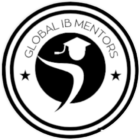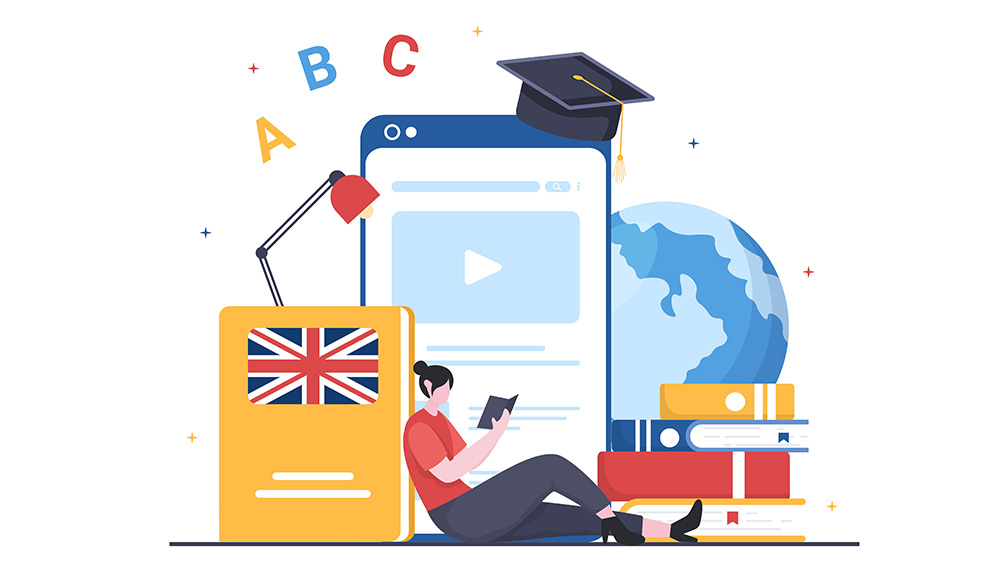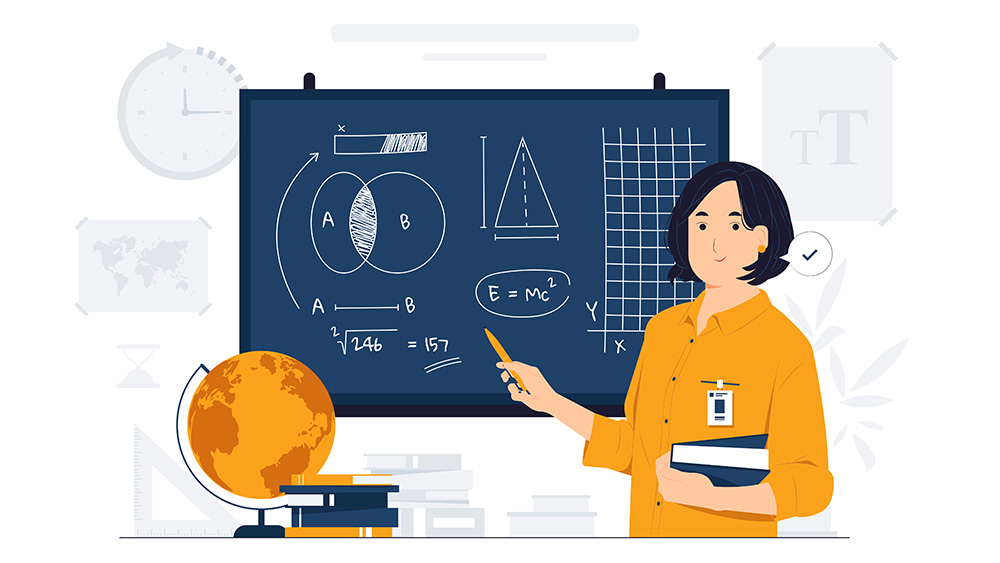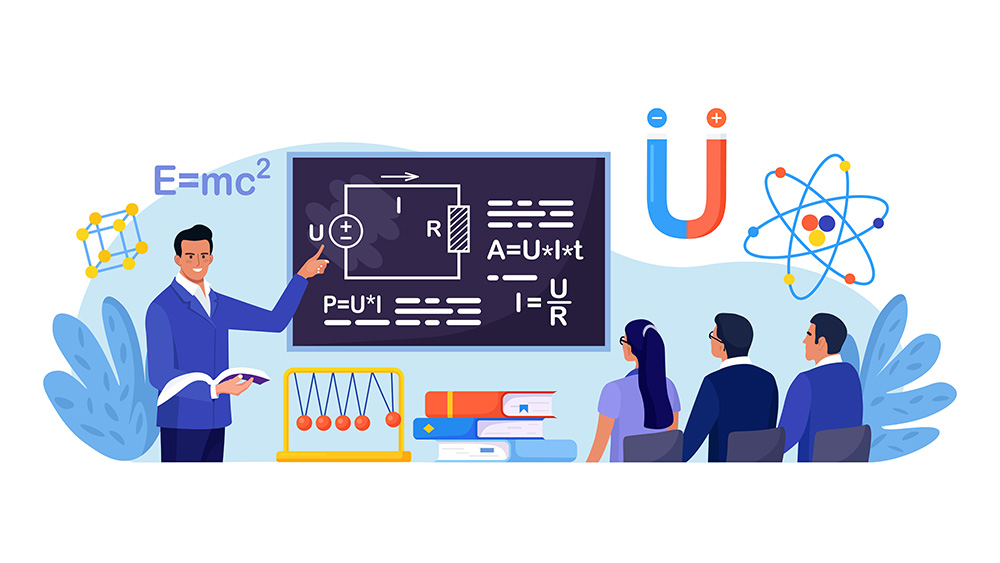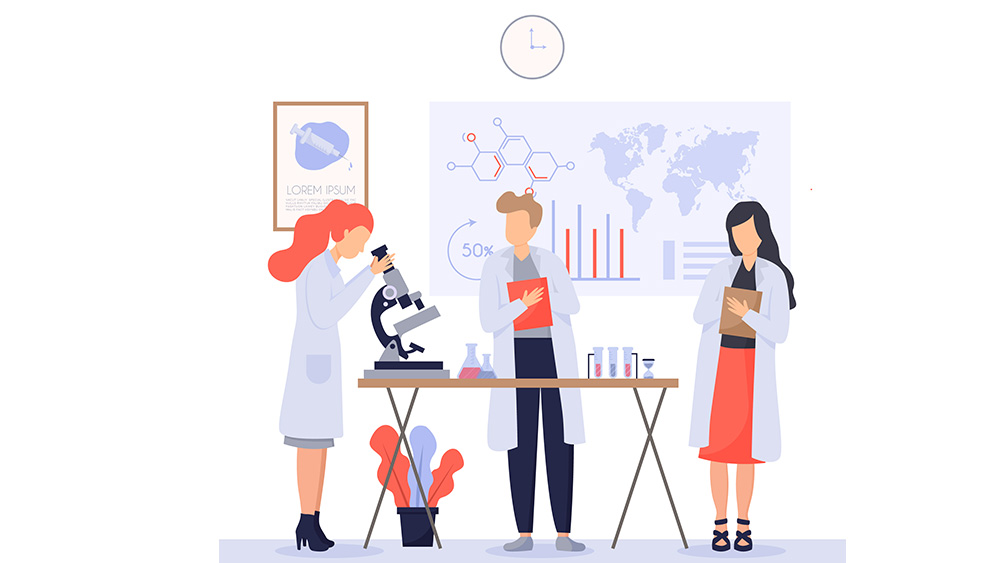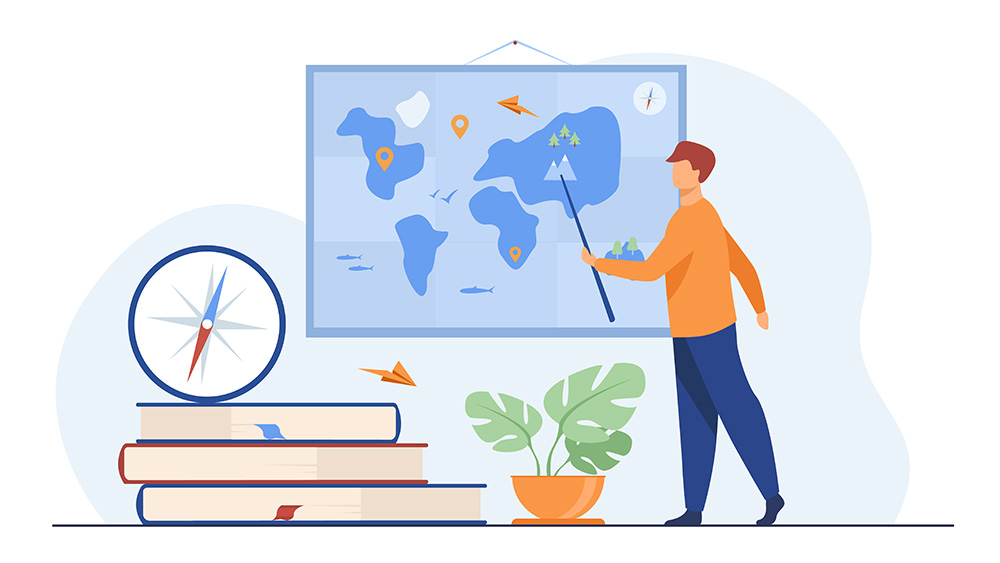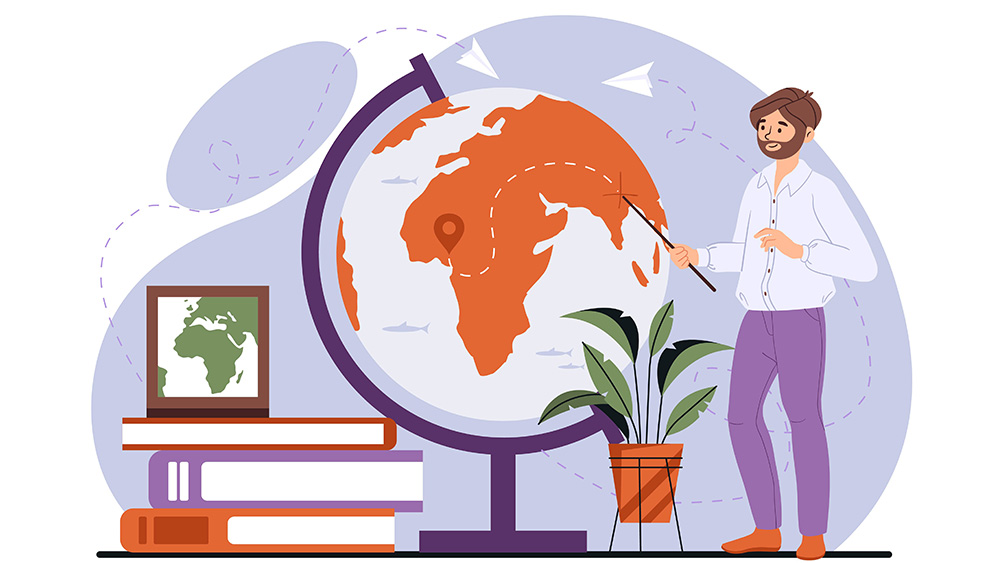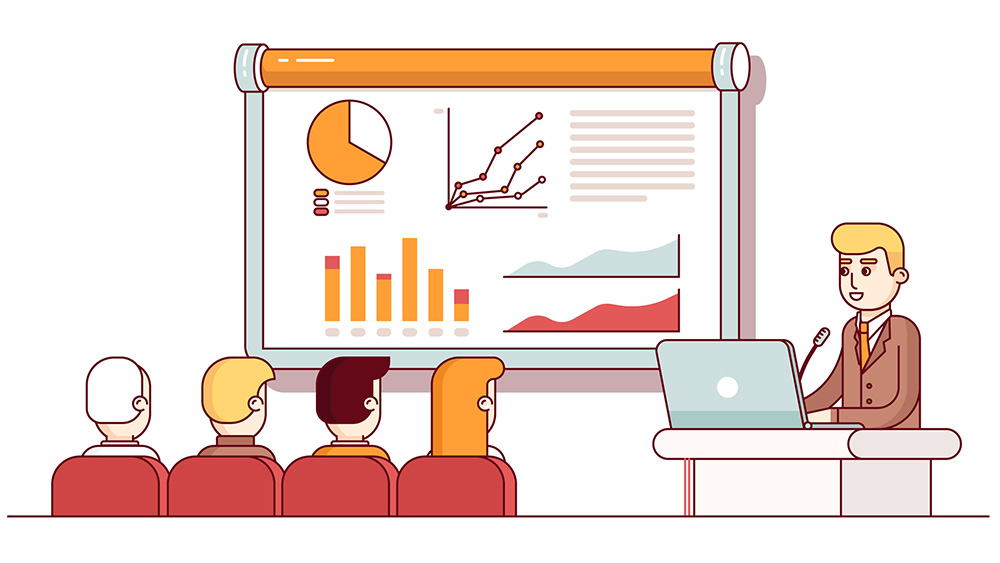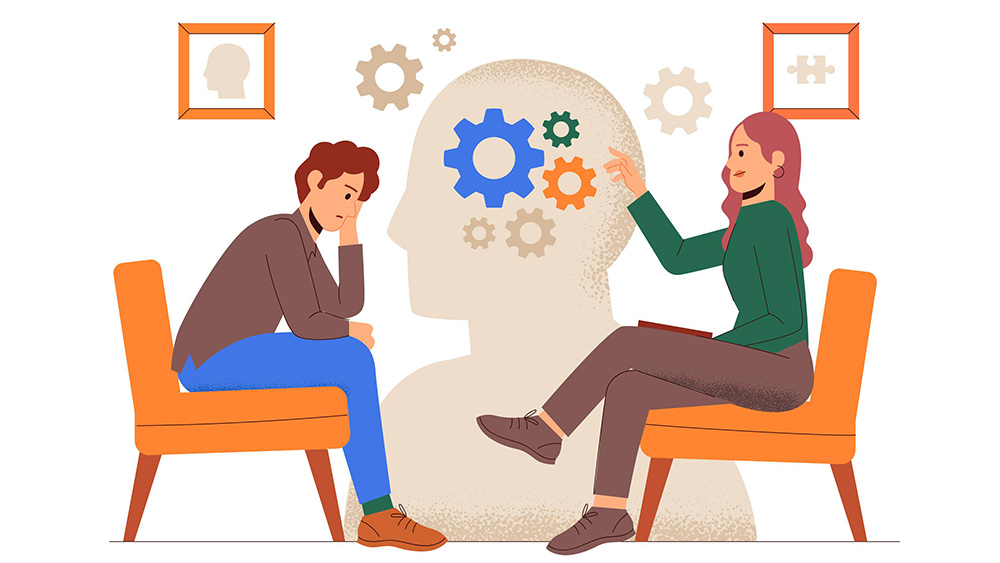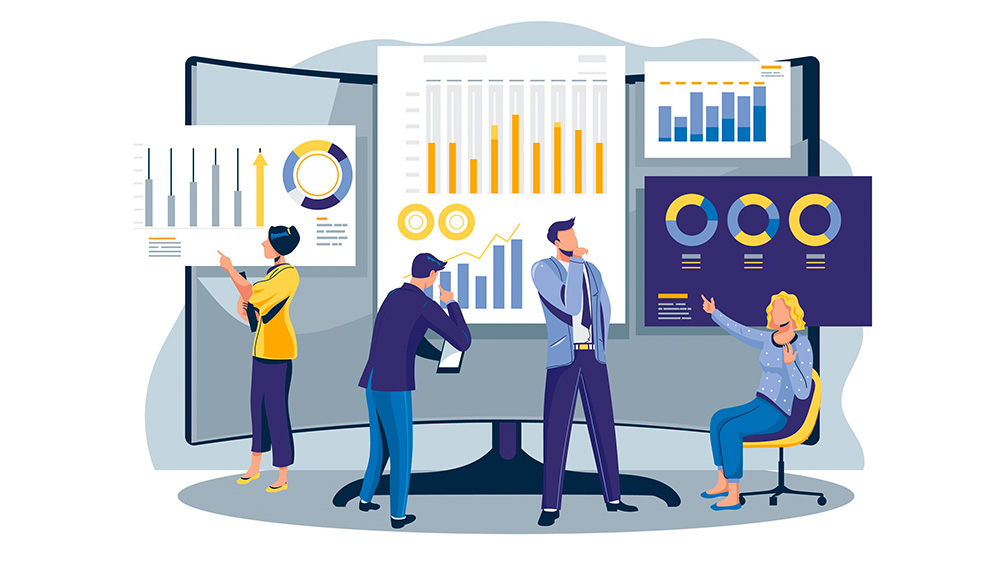IB’s Approach To Teach And Learn Mathematics
In organising and relating facts and themes, concepts play a significant role in mathematics, assisting both students and teachers in developing increasingly complex thought processes. Students apply conceptual knowledge to problem-solve, analyse, and evaluate choices that may affect them, their communities, and the larger world.
Conceptual insights are essential for fostering deep learning in DP mathematics courses. The course outlines twelve fundamental ideas that pertain to each of the five areas with varied degrees of emphasis. To comply with local conditions and state or national curricular standards, tutors may find and create new concepts. These ideas are used by tutors to create connections across the curriculum.
The DP’s approach to teach and learn refers to intentional tactics, abilities, and dispositions that permeate the classroom. The IB learners’ profile, which promotes experimentation, inquisitiveness, and discovery in the classroom, is inextricably related to these methodologies and resources.
Students should routinely learn mathematics in the IB classrooms at GIBM by actively participating in learning activities. Therefore, IB maths tutor in India from We must employ tactics that encourage students’ critical thinking and problem-solving skills in order to give them the chance to learn using mathematical inquiry.
Technology And DP Mathematics
Technology utilisation is a crucial component in DP mathematics education. One of the goals of the courses is to help students gain an understanding of how technological and mathematical advancements have influenced one another, and one of the assessment goals is to help students use technology accurately, appropriately, and efficiently to explore new ideas and solve problems. The ability to use various technological tools is a crucial skill in mathematics, and time frame has been allotted for it in every topic of the curriculum and through the “toolkit.”
Teachers from GIBM employ technology in a variety of ways to promote and improve students’ comprehension, including:
- To highlight important lessons
- To clear up misunderstandings
- To facilitate visualising
- To improve comprehension of ideas that might otherwise be constrained by laborious numerical computation or algebraic manipulation
- To assist pupils with speculating and verifying generalisations
- To formally establish connections between various mathematical representations or methods
Teachers from GIBM must start by giving students a lot of direction before gradually enticing them to become more self – reliant as thinkers and inquirers as they connect the underlying themes of mathematical investigation, mathematical modelling, and the use of technology.
GIBM learner’s approach is to use technology to participate in the educational process in a variety of ways, such as the ones listed below:
- To improve their own individual conceptual understanding
- Looking for patterns
- To validate hypotheses or generalisations
- As a defence for interpretations
- Cooperate together on a project
- Aid in data organisation and analysis.
Syllabus
Each topic starts with SL information that is shared by both the applications and interpretation of mathematics as well as the analysis and techniques of mathematics. Each topic includes SL content first, then AHL.
With SL students, an IB maths tutor makes sure he/she include all SL material, and with HL students, he/she teach all SL and AHL material. The way the subjects are organised allows for a common content introduction to be codified in the SL material before being expanded upon in the AHL content. For instance, in the ordinary content, positive real numbers, the SL content, and the AHL content, all real and complex numbers could be the extension of the number set for something which is defined.
The SL material and AHL content may be taught concurrently by HL teachers, or they may be taught in a spiralling order, with the SL content being taught first and the AHL topics following.
No matter how the IB course is structured, enough time must be allowed for exam revision. Students must be given time to think back on their education and their development as learners.
FAQ'S
What is the IB Mathematics programme, and how is it different from other math curricula?
In a recent study by the Higher Education Statistics Agency (HESA), the four mathematics courses offered by the IB’s Diploma Programme (DP) were contrasted with five international maths diplomas: the Alberta Diploma, GCE A levels, Advanced Placement, Singapore-Cambridge GCE A Levels, and Gokăo. This study had two parts: a comparison of curricula and a comparison of assessments. And the results were in the support of IB DP Methematics.
What is IB mathematics assessment model?
The assessment goals are the same for both applications and interpretation in mathematics as well as for analysis and techniques in mathematics. Recall, pick, and apply their understanding of mathematical facts, concepts, and processes in a variety of well-known and foreign contexts. In order to solve problems, one must be able to recall, pick out, and apply their understanding of mathematical concepts, findings, and patterns in both hypothetical and practical settings. Communication and interpretation, Technology, Reasoning, Create mathematical arguments, drawing logical conclusions and Investigate novel situations.
What are the main distinctions between Higher Level (HL) and Standard Level (SL) maths?
Each student has unique requirements, aspirations, interests, and skills. Due to this, there are two distinct mathematics courses that are offered at the SL and HL levels. These courses are intended for a variety of students, including those who want to learn mathematics as a standalone subject, pursue their interests in math-related fields, and develop their knowledge and skills in relation to real-world situations and other topics. Every course is created to satisfy the requirements of a particular group of students. Both Mathematics: Applications and Interpretation and Mathematics: Analysis and Approaches are offered at the SL and HL levels.
What is the best method for learning calculus?
You must practice using the proper approach when solving difficulties. In the presence of the lecturer, teaching assistant, tutor, or even your peers, try to find solutions. In this method, it is far more likely that the practice will be “good” practice and you can receive rapid feedback. By studying the solutions manual or other people’s work, you cannot become an expert in calculus.
What role do mathematical proofs have in IB Mathematics?
Absolutely necessary IB mathematical proofs are a concealed weapon for demonstrating mathematical truths with unwavering logic. You’ll sharpen your analytical thinking and problem-solving abilities through proofs, developing ninja-like mastery of difficult ideas. These proofs are the building blocks of mathematical discovery and beauty, not merely abstract puzzles. Prepare to discover, astound, and dominate the world of mathematics using the force of arguments!
How do I pick the right statistics or probability distribution for circumstances that actually happen in real life?
Are you prepared for some actual magic? It’s like choosing the best tool for the task when choosing the ideal statistics or probability distribution. Choose the distribution that perfectly fits your scenario from the options of normal, binomial, or exponential. Consider it your maths compass leading you through the untamed realities of life!
How can I use a graphing calculator efficiently? Are they permitted in IB Mathematics exams?
You have a graphing calculator-wielding math companion, for sure! Learn its skills, like integrals, intersection finding, graphing functions, and more, to increase your productivity. Get those laborious calculations done! But hey, there are rules that apply to IB Maths tests; specific types, like the TI-84, are permitted. Practice with your reliable sidekick, but also recognize when to go it alone! Calculator magic is waiting for you; you can do this!
What part does technology play in making difficult geometric concepts visual?
Your superhero in geometry is tech! Interactive technologies like GeoGebra and software for graphing can bring complicated shapes and concepts to life. Transform enigmatic concepts into vivid visual wonders that will aid in your pursuit of the truth. It’s essentially a virtual geometric playground; you can rotate, magnify, and modify! Geometry is a captivating quest you will not want to miss since technology transforms difficulty into triumph.
What is the IB Mathematics Extended Essay, and how do I choose a fascinating study topic?
Hello, brave student! You can go deeply into a math subject you are passionate about with the IB Mathematics Extended Essay. Combine your enthusiasm and curiosity to come up with an amazing theme. sports fan? Investigate the math underlying successful tactics. Interested in the arts? Make masterpiece geometry visible. Choose a route that excites you—this is your mathematical odyssey! fixed out on an essay that will astound readers with your compass fixed on the excitement!
Where to join IB Mathematics tuition?
Are you up for a Maths IB adventure? IBGA is your go-to resource for mastering IB Mathematics, so don’t look anywhere else! Join a community of other learners and enter a world of personalized coaching and interactive lessons. IBGA has your back whether you’re mastering calculus or controlling geometry. Instead of just adding up numbers, discover the enchantment of maths with the help of knowledgeable tutors and fun resources. IBGA can help you advance your abilities as you embrace your maths adventure like a genuine champion!
How do I find the best IB mathematics tutor?
You’ve decided to start looking for the best IB Maths tutor. IBGA is the only place to turn! IBGA holds that with practice and hard work, every kid can achieve academic success in IB maths. Every topic in the IB maths curriculum is covered by Teaching-Modules within its study plan. IBGA aids kids in acquiring a mathematical aptitude that allows them to come up with original solutions to every challenge.
How to score well in IB Mathematics?
Are you prepared to ace the IB Maths exam? First, put understanding before memorizing and commit ideas to memory. Exercise, exercise, exercise! Solve a myriad of issues to increase your confidence. Need assistance? Make contact with professionals like IBGA for superior advice. The best work is done in teams; thus, study groups are awesome! Be tenacious and optimistic, and get prepared to wow your professors with your math papers! You can do this, math whiz!
Related Courses
WHAT STUDENTS SAY



